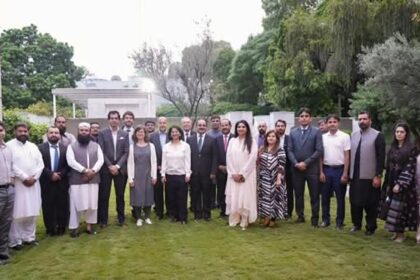Political Defections – A Tragedy of Our Times
By: Zaheer Ahmed Awan
From the age of ignorance to the modern democratic era, the act of changing one’s loyalties has always been considered morally reprehensible and politically unethical. Loyalty, in essence, means standing firm on one’s principles, ideology, and commitments. Unfortunately, in Pakistan’s political culture, loyalty has been turned into a tradable commodity. For many politicians, allegiance is not a matter of ideology but a matter of opportunity a means to secure power, position, or personal gain.
This constant shifting of loyalties has gravely eroded public trust in politics. In Pakistan, with few exceptions, the majority of politicians have switched parties for personal advantage often for ministries, money, or influence. Horse trading and the buying and selling of elected representatives have become an ugly stain on our democracy.The tragedy is that this has not been an occasional occurrence but a recurring pattern since the early days of Pakistan’s political history. From the 1950s to the 1990s and even today, governments have risen and fallen on the basis of defections. The faces change, but the practice remains the same.Today’s youth are increasingly disillusioned with this corrupt and outdated system. They see politics not as a noble pursuit but as a market where principles are traded for profit. When young citizens witness representatives abandoning their ideology for convenience, their faith in democracy begins to collapse.Defections occur at every level of governance from national and provincial assemblies to the Senate, presidential, Azad Kashmir, and even local body elections. Within political parties, the distribution of tickets is often driven by financial power rather than merit or service. Those who “buy” party tickets enter parliament not to serve the people but to recover their investment through influence and corruption.
This moral decay stems from Pakistan’s feudal, capitalist, and dynastic political structures. Politics has become a family enterprise dominated by landlords, industrialists, and hereditary politicians who treat public office as personal property. Party switching is merely a tool to sustain their grip on power.
However, around the world, nations have recognized this threat and introduced strong legal mechanisms to curb political defection:
- India, in 1985, enacted the Anti-Defection Law by adding the Tenth Schedule to its Constitution. Under this law, any legislator who defects from their party or votes against party policy loses their seat. This legislation brought a significant degree of stability to Indian politics.
- In the United Kingdom, defection is treated as a serious breach of public trust. Although there is no formal law, the moral and political pressure is so intense that members who switch sides are often compelled to resign.
- In Australia, New Zealand, and Canada, any elected representative who changes party allegiance must seek a fresh mandate through a by-election — allowing voters to decide whether they still trust that representative.
- Several African countries, including Nigeria, Kenya, and South Africa, have also enacted anti-floor-crossing laws to preserve democratic integrity and prevent political opportunism.
In Pakistan, Article 63-A of the Constitution provides for disqualification on the grounds of defection. It empowers party heads to seek the removal of any legislator who votes against party policy or defects to another side. However, the problem lies in inconsistent implementation. Successive governments have manipulated or weakened this clause for their own political benefit, allowing horse trading to continue under different guises.
Political defection is not merely a constitutional violation; it is a betrayal of the public mandate. Voters elect representatives based on party ideology and manifesto. When those representatives abandon their party, they betray not just their leadership but also the people’s trust.If this trend continues unchecked, public confidence in democracy will completely erode. Politics will remain the domain of a few wealthy dynasties, while ordinary citizens will be reduced to mere spectators.To reverse this decay, decisive reforms are essential. Pakistan must take practical and legislative steps similar to other democracies:
- Ensure genuine intra-party democracy so that leadership and decision-making are not monopolized by a few.
- Enforce immediate disqualification and re-election for any legislator who switches party allegiance.
- Introduce financial transparency in party funding and ticket allocation.
- Treat defection as public deception, punishable under law.
- Encourage civil society, media, lawyers, teachers, and students to launch awareness campaigns against this unethical practice.
As a nation, we must recognize that this culture of political betrayal is poisoning the roots of our democracy. I earnestly appeal to Pakistan’s educated and conscious class teachers, lawyers, scholars, and journalists to raise a united voice against this corrupt tradition of political horse trading.
This is not merely a political issue; it is a question of national morality and democratic credibility.
Unless we reconnect loyalty with principle, ideology, and service, our politics will remain a marketplace and our democracy a mere illusion.The time has come to end this tragedy to build a new political culture based on honesty, consistency, and faithfulness to public trust. Only then can Pakistan’s democracy truly reflect the will and dignity of its people.











